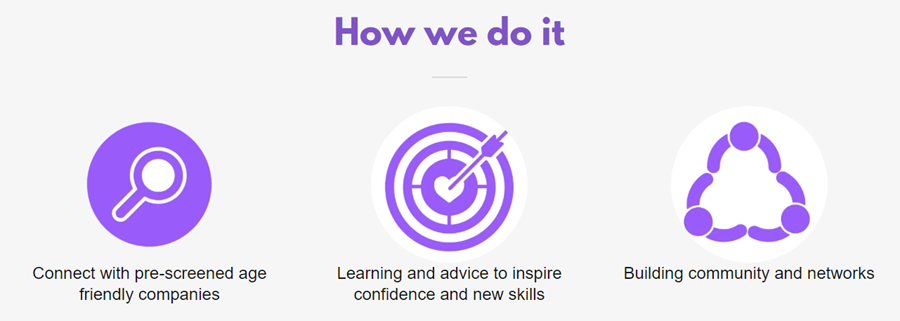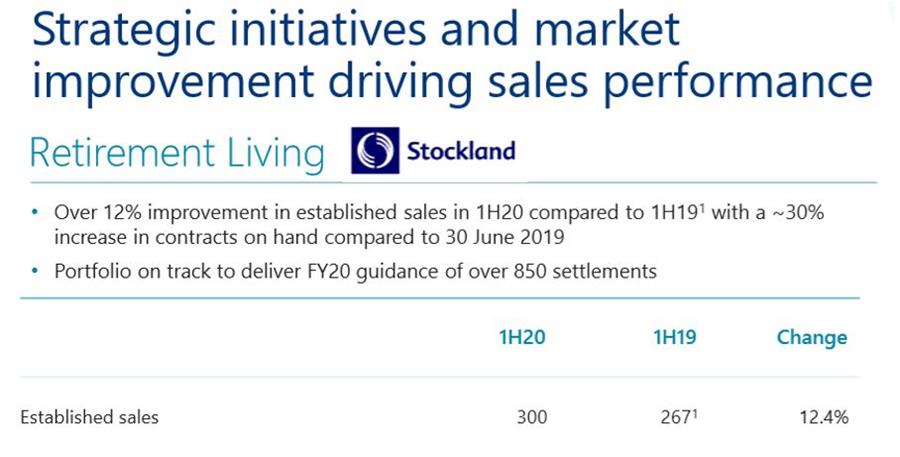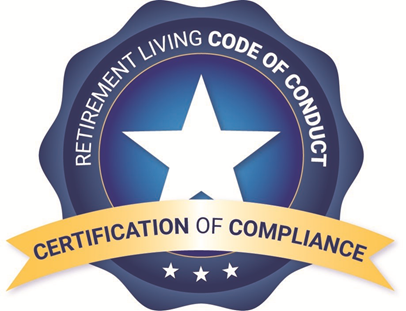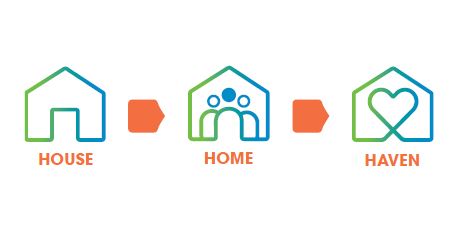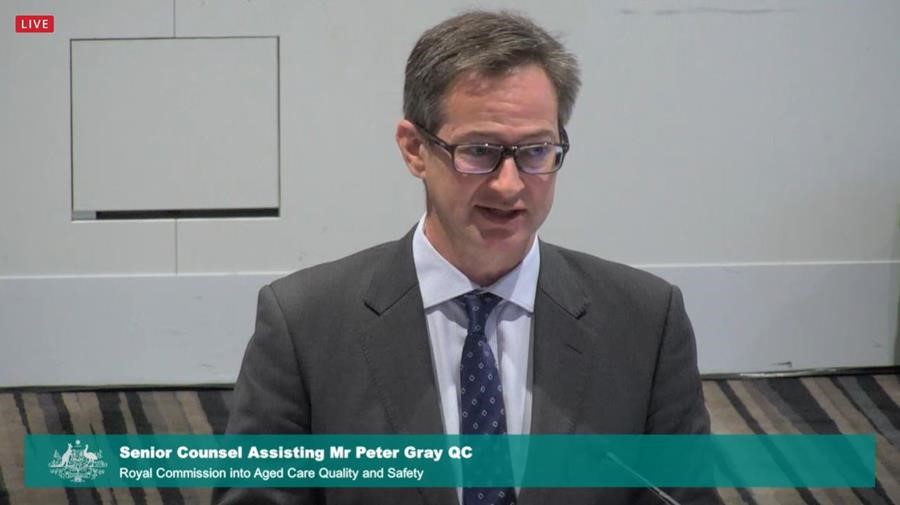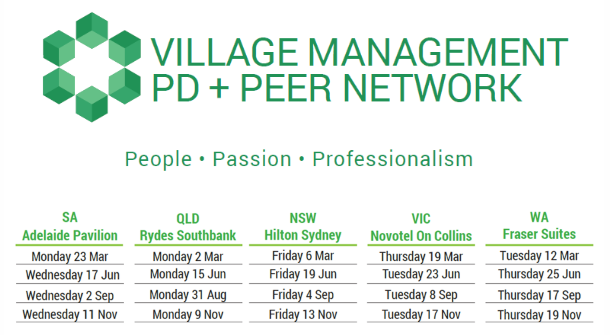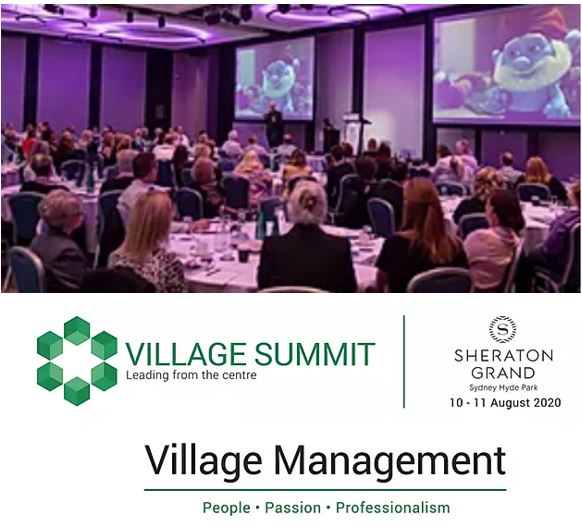Matt Church is welcomed back to open the Village Summit 2020 on Monday 10th and Tuesday 11th of August at …
Recently I had the good fortune to catch up with my good comrade Michael Jones, Chair, Resident’s Finance Committee. I …
This week Sydney Startup WizeNomads launched a grassroots movement to connect age-friendly employers with experienced people. WizeNomads is an organisation …
Reports from the field by the likes of Stockland are telling us that retirement village enquiry, reservations and settlements are …
DCM Institute is excited to bring to its members an International study tour to New Zealand in July 2020. New …
The new Code of Conduct is gathering speed. Close to 50% of all villages across the country have now started …
Where do older Australians want to live? To make their home? The Global Centre of Modern Ageing (GCMA), a grand …
Our 2020 DCM Institute PD days commence in Brisbane on 2 March, and then roll across the country. All your …
Capital expenditure budget planning. There have been many many lessons I have learned in my retirement community management journey over …
‘New thinking’ is emerging at the Royal Commission into Aged Care, and retirement villages are looking good! The Commissioners have …
We are pleased to confirm the dates and locations of our Village Management PD days for 2020. Check your city …
We have made the difficult decision to postpone the 2nd VILLAGE SUMMIT conference, scheduled for 20 and 21 February. So …



